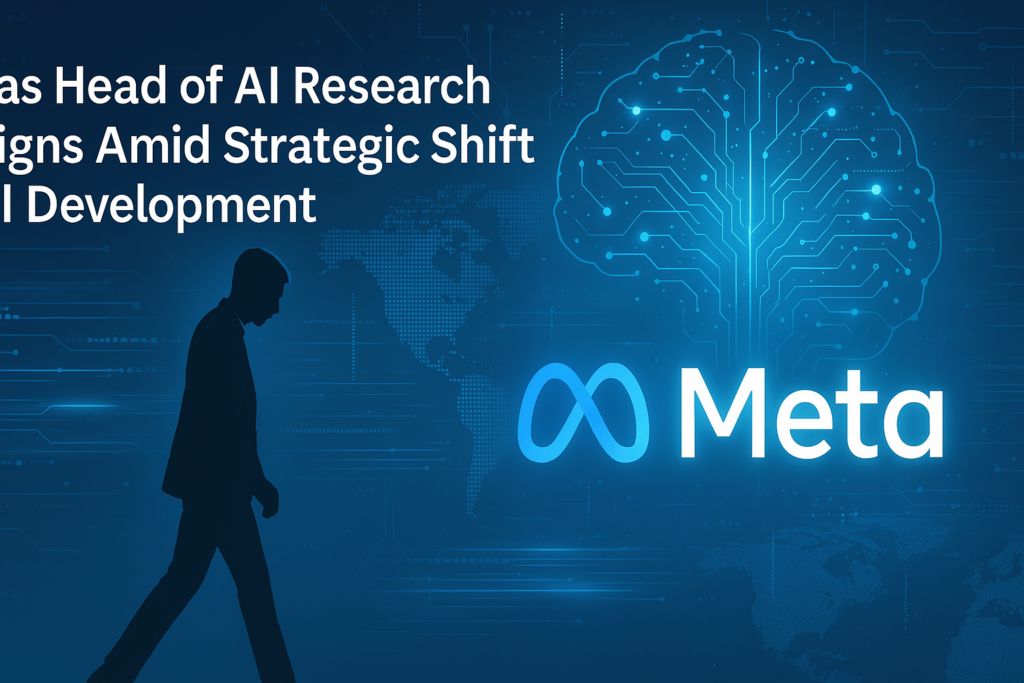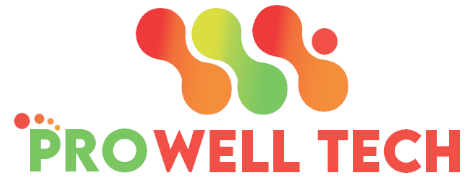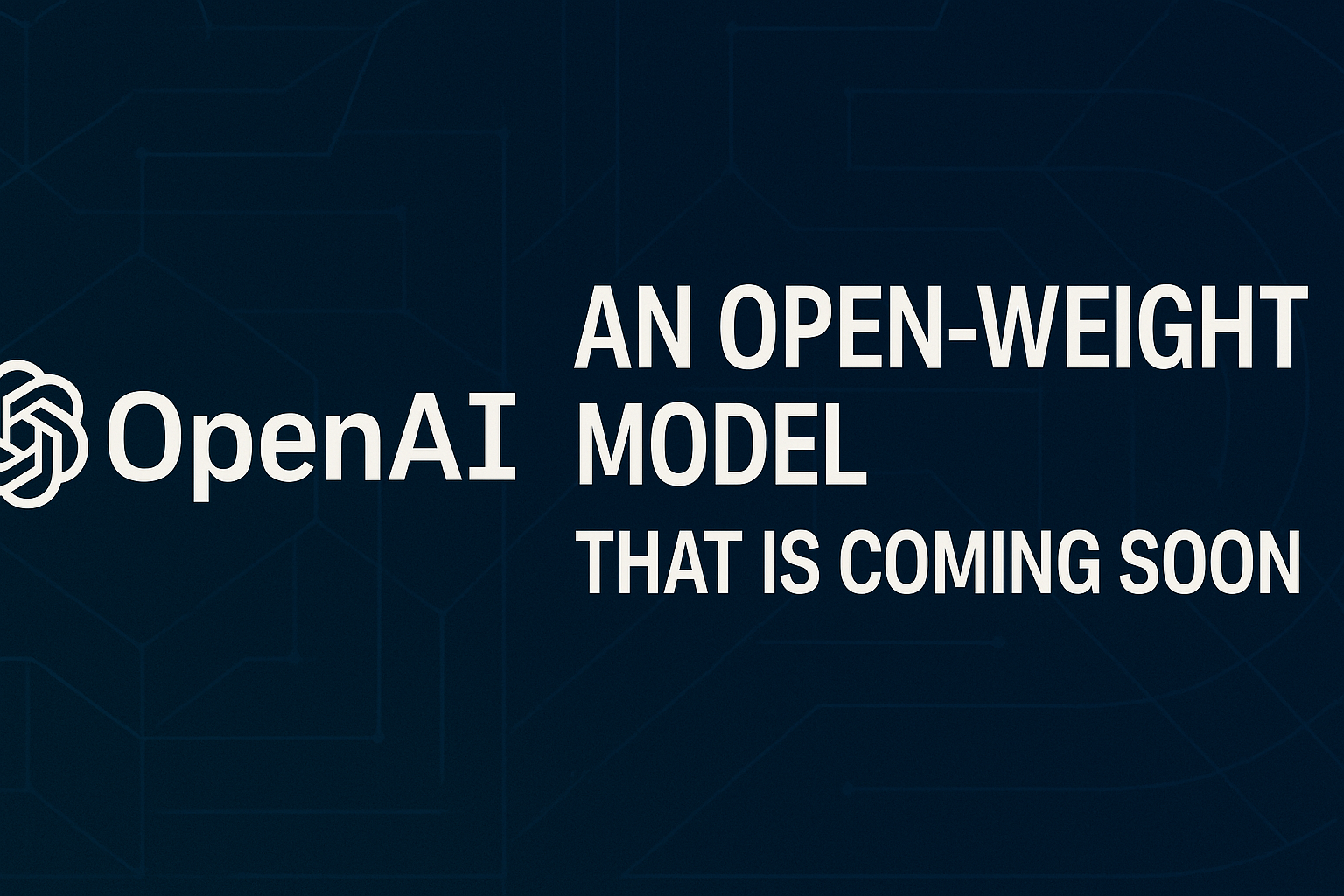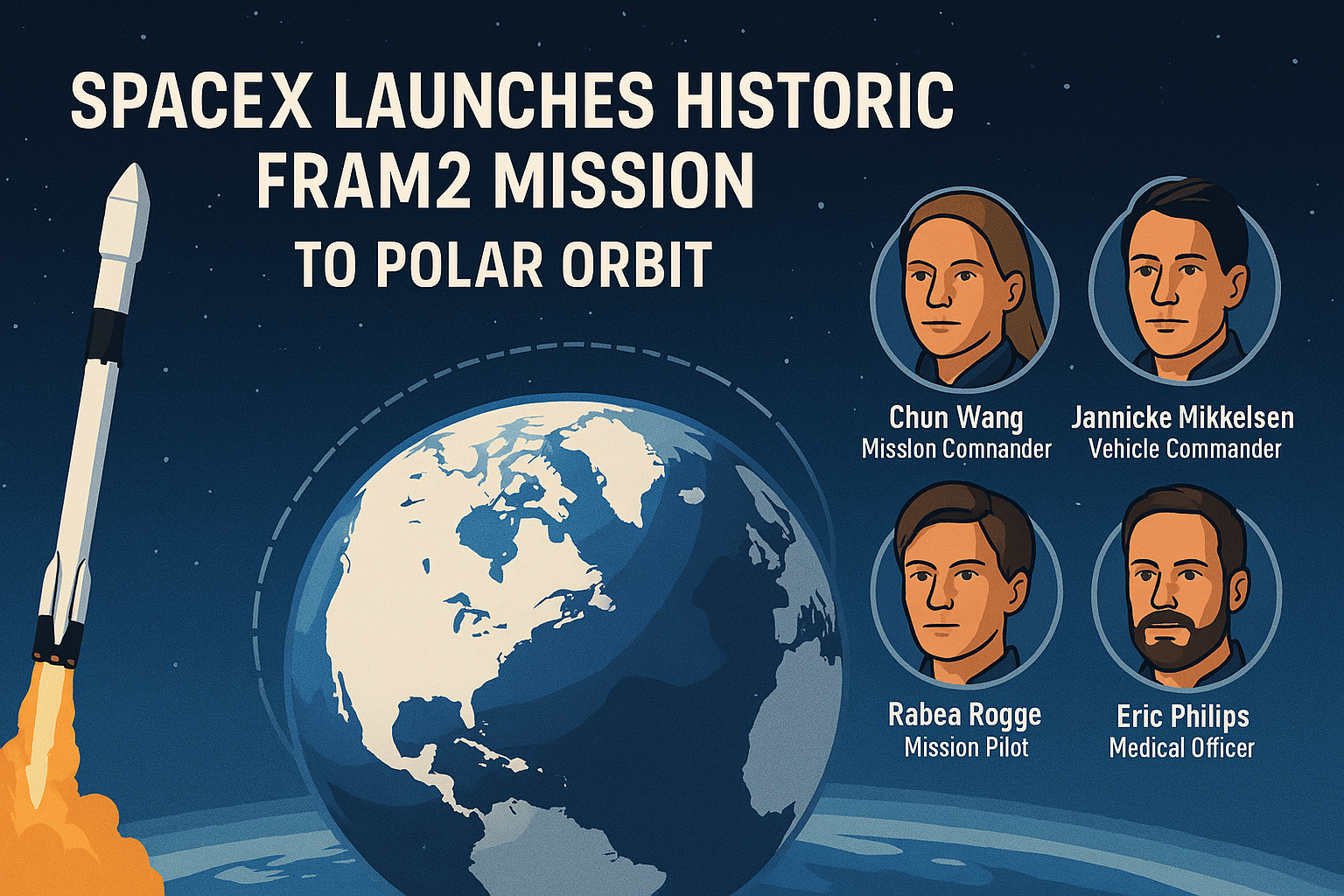Contents
- 0.1 AI Research Head at Meta to Leave as AI Strategy Aligns with Palantir
- 0.2 The News: Joëlle Pineau Resigns
- 0.3 Pineau’s Time at Meta, In Pictures The Lab at Meta
- 0.4 Meta Gets Serious About AI and Recap of Competition
- 0.5 Implications for Meta’s AI Strategy and Leadership
- 0.6 Meta’s Commitment to Open Source in the Future
- 0.7 General Developments in the Industry and Their Repercussions
- 0.8 Looking Forward: Meta’s Next Phase in Artificial Intelligence
- 0.9 Where Will Joëlle Pineau Go Next?
- 1 Conclusion
AI Research Head at Meta to Leave as AI Strategy Aligns with Palantir
Joëlle Pineau, now-former VP of AI Research at Meta, resigns — a bittersweet sign for Meta’s competency and evolving momentum in competition. The news of Pineau’s departure, which was announced on April 2, 2025, after eight years at the company, including having led the Fundamental AI Research (FAIR) division since 2023, comes at a significant time as Meta quadruples down on its investments and ambitions in AI We will dive deeper into the details of Pineau’s resignation, go into Meta’s AI efforts during her tenure, assess the potential impact on research direction and competitive positioning of Meta, and place this latest leadership change in the context of the evolving AI industry.
The News: Joëlle Pineau Resigns
On Tuesday, April 1, 2025, Joëlle Pineau announced her resignation in a LinkedIn post. She will officially depart Meta on May 30, 2025. This news arrives just before Meta’s first-ever LlamaCon AI event on April 29, 2025. That timing, certainly a prelude to a big AI event from Meta, may indicate a desire for a departure before a major public showing of the company’s AI work, or it could simply be a happy coincidence.
“Today, in a world that is changing fast, as we race towards AI, and as Meta continues to write its next chapter, it is time to make room for others to pursue the work,” Pineau said in a statement on social media. She also said she planned to “observe and reflect” before starting a new venture. Those reasons offered by Pineau are general but reflect the fast-moving pace of the AI arena and a shift in Meta’s strategic direction. The comment about making space for others could suggest a divergence of views on the future of Meta’s AI research or be a move of personal progression.” Her suggestion to set aside time to think suggests a thoughtful approach to her future career moves.

Some reports said Meta did not immediately respond to requests for comment. But later, a Meta spokesman thanked Pineau for leading FAIR, her work on open-source projects and “to further both Meta’s products and the underlying science”. Meta said in a statement that the company was in the process of finding her replacement. The spokesperson also emphasised that Pineau’s exit doesn’t indicate a shift in Meta’s AI strategy and that they would continue their plans. Meta’s official reaction expresses gratitude for Pineau’s contributions and a promise to ensure continuity. Still, the failure to name an immediate successor to such an important post reminds us of the status of the person who held the position and the potential challenge to replace such a role. Specifically, the assertion that the AI strategy will not significantly alter should be viewed cautiously, as leadership transitions at this level typically result in long-term strategic changes.
Pineau’s Time at Meta, In Pictures The Lab at Meta
Joëlle Pineau is a leading Canadian researcher and an associate professor in the School of Computer Science at McGill University in Montreal. She plans to remain in her academic post. Pineau started working at Meta in 2017, initially leading its Montreal AI research lab. In 2023, she also became the new head of Meta’s AI research group (previously, Facebook AI Research or FAIR), which Yann LeCun originally started. LeCun resigned as the head of FAIR in 2018 but currently serves as Meta’s Chief AI Scientist.
Given Pineau’s long academic history, it probably will have heavily emphasised research fundamentals and methods in Meta’s AI programs. This promotion to lead the entire FAIR division shows increasing trust and confidence in her leadership and strategic vision at the company. Pineau’s new role does not necessarily indicate a schism: with Yann LeCun retaining his position as Chief AI Scientist, it may be that the divisions of labour for leadership are complementary or overlapping within Meta’s AI research framework — something whose exact nature may be in flux with Pineau’s move.
Pineau emerged as a central figure at Meta throughout her tenure, which contributed to the company pursuing an “open source” strategy for building AI systems. She was one of the most important and influential figures in advancing AI research at Meta, heading up the FAIR group and spearheading major initiatives like PyTorch and Llama. The team under her leadership also created and nurtured many other impactful projects — FAISS, RoBERTa, DINO, SAM, Codegen and Audiobox, to name a few.
These initiatives have been hugely important for Meta’s products and have profoundly affected the broader AI community. Pineau built a team that exponentially grew under her leadership to nearly 1,000 researchers in ten locations across the globe. While at Meta, she stressed the need to build responsible AI. With the powerful Llama series of models, Pineau’s team at Meta became one of the leading figures in the AI open-source era.
She has played a vital role in many diverse and influential projects that reflect her considerable impact on Meta’s advancements in AI and the industry. Under her leadership, the expansion of her FAIR team illustrates how to lead and scale a significant research organisation. Given the growing ethical concerns about deploying advanced AI technologies, her commitment to responsible AI development is especially timely.
Meta Gets Serious About AI and Recap of Competition
Meta is massively ramping up its investments in artificial intelligence to compete with heavyweights like OpenAI, Anthropic, and xAI, which iElon Musk owns. Meta CEO Mark Zuckerberg has made AI a significant priority for the company, pledging as much as $65 billion to related initiatives in 2025. Extensive work involving multiple teams and billions of dollars has filtered down through Meta’s strategy — to position its open-source large language model, Llama, as the industry performance bar and to achieve some user scale for its AI chatbot integrated into Facebook, Instagram and WhatsApp — 1 billion users. Meta has been pitching the coming Llama 4 as the underpinnings for its next generation of AI agents.
Meta has also been building its AI training chip, hoping to slice its reliance on external suppliers such as Nvidia and reduce its heavy AI infrastructure costs. This hefty investment demonstrates Meta’s deep commitment to being a player in the fast-developing space of artificial intelligence. Another significant point of differentiation is their strong emphasis on open-source models such as Llama, a strategy aimed at maximising adoption and incorporating community-driven features and improvements based on feedback and needs, in contrast to other players who primarily develop their models behind closed doors.
Meta is also investing in a dedicated custom AI hardware design, which is a clear sign of its strategic plan to gain more control over the power and efficiency of its AI infrastructure. This could yield significant performance or cost savings down the road.
AI is a battlefield with blood rivals, with OpenAI and its GPT models on one flank and Google DeepMind with its Gemini family of AI on the other. Other significant players in this rapidly evolving market include Claude from Anthropic and Grok from Elon Musk’s xAI. Interestingly, a rival open-source competitor, DeepSeek AI, has cropped up and reportedly made waves in Meta’s Generative AI org. Meta’s calculated dependence on an open-source model marks a sharp departure from the closed-source models of OpenAI, Google and Anthropic.
The fact that you approach one thing differently indicates the variety of approaches at the front lines of the AI arms race. Meta’s open-source gambit aims to harness collective effort by the research community and position its models as core building blocks for the future of AI. However, the reported internal concern over the competition from other open-source models indicates that this strategy might continue to face challenges or evolve due to a changing labour landscape.
Implications for Meta’s AI Strategy and Leadership
Meta hasn’t named a successor for Pineau yet, but the company has acknowledged that a search is being done. Last year, Meta restructured its AI teams, bringing the FAIR group into closer alignment with product development. Pineau and Yann LeCun started reporting to Chief Product Officer Chris Cox as part of the transition as part of the transition. The lack of a clear successor for Pineau indicates how strongly her particular expertise and vision for Meta’s AI research may have played a role at the company. The earlier reorganisation signals Meta’s shift toward a more product-orientated approach concerning implementing the results of AI research across the company’s offerings. Pineau’s departure might speed this trend or alter it, depending on the pedigree and priorities of whoever succeeds her.
Pineau’s exit could perhaps change some of Meta’s focus and priorities around AI. According to the new leadership’s vision, there may be more focus on translating fundamental research into tangible products or, on the other hand, on more exploratory, long-term initiatives. Meta’s large amount of money poured into AI infrastructure may show it’s settled on large-scale AI development. Still, specific pathways, like its pursuit of “artificial general intelligence” (AGI) or the creation of concrete AI-based applications, may be determined by who leads it going forward.
Changes of this nature at the very top level of leadership invariably act as catalysts for re-examining the strategic imperatives underpinning the business as it unfolds. Pineau’s background and public statements suggest she has been a staunch advocate of open-source research. Her successor may have different views on the trade-offs between closed and open AI models and may alter Meta’s overall AI strategy. Technology companies always face the inherent tension between conducting fundamental research and delivering commercially viable products, and this leadership transition could shift this balance.
Pineau has been a key advocate for open-source AI at Meta, so her departure raises the question: How committed is the company to this avenue moving forward? Meta knows how to build impactful open-source projects based on Llama and PyTorch and how to move on from them, but the new head of AI research may signal a change in direction for open vs closed models. Pineau’s departure adds a layer of uncertainty around the direction of Meta’s open-source AI efforts. While the company publicly states its commitment to this model, the extent of investment and strategic focus devoted to open source might have changed without her compelling presence within the executive team.
Meta’s Commitment to Open Source in the Future
Some may interpret Pineau’s resignation as a sign of a possible departure from Meta’s focus on open-source research, depending on her successor’s commitment or lack thereof to this agenda. That said, Meta must be mindful that it has already invested significant time, money, and momentum in several open-source projects, especially the Llama family of large language models. This indicates that a drastic change from the open-source strategy will probably not be on the table in the near term.
Moreover, the growing competitive threat from rival open-source models like DeepSeek may still influence Meta’s future trajectory. However, to properly manage several decades of investments in artificial intelligence and LLMs in particular, the company must consider its open-source approach’s strategic advantages and possible disadvantages in a competitive landscape.
General Developments in the Industry and Their Repercussions
Pineau’s departure highlights the fierce competition for top-tier AI talent in the tech industry. The AI community will closely watch the next step in her career as a signal of where top researchers see the most potential for the future. This takes place in the context of the ongoing debate in the AI community about the pros and cons of open-source vs. closed AI models.
Pineau’s vocal support for open source has brought these debates to the public’s attention, and his departure could potentially shift the balance. Moreover, considering that Pineau has been vocal about responsible AI development, a leadership change at Meta could shift the company’s focus and strategy for dealing with AI safety and ethical issues. Leadership changes in large AI research organisations often indicate—or are even precursors to—broader technological shifts as firms adjust to the fast-moving terrain of artificial intelligence.
We see Meta’s restructuring last year and the integration of FAIR into product development as indicative of a broader trend across the industry towards the practical application of AI research into the products and services we use daily. However, her exit may follow the shift or potentially spark a change in Meta’s strategic path.
Looking Forward: Meta’s Next Phase in Artificial Intelligence
Meta takes on the challenge of naming a new head for its vast AI research operation, an early signal about the direction the company aims to go for the future of artificial intelligence. Considering CEO Mark Zuckerberg’s publicly announced priorities and the highly competitive environment, Meta will likely maintain its substantial investments in AI infrastructure and research.
Given the success of the Llama model series and the upcoming LlamaCon conference, open-source efforts are likely to be a core part of Meta’s broader AI strategies. Still, the level of focus on this approach could change under new leadership. Meta’s claims of a focus on embedding AI capabilities into its core products and its goal of reaching a billion users with its AI chatbot suggest a robust desire to translate AI research into practical and widespread uses.
Whoever succeeds Pineau will heavily influence the company’s next phase of AI development. Meta must strike a tricky balance between exploring the frontiers of fundamental research and simultaneously building AI-infused products that can compete with similar offerings from its bigger rivals. Meta must also balance its dedication to open-source ideals with the strategic imperative to maintain a competitive advantage in the coming years.
Where Will Joëlle Pineau Go Next?
Pineau has announced she will take time “to observe and reflect” before starting her next professional chapter. Having a PhD herself and still active at McGill University, she could return to a university in an academic role or as a senior researcher within academia. Her deep experience in responsible AI, open-source development, and other areas may make her an even more valuable asset for other AI companies, research institutions, or government initiatives on AI policy and ethics.
Many believe she could work at an AI startup, using her experience to help disrupt and bring such a startup to the next level. Or, she might decide to devote her time and energy to her continuing work at McGill University, possibly with a new attitude toward some research areas.
The AI community will no doubt closely closely follow PINEAU’s next career move. Her deep background and leadership in a large industry research lab ensure that she is a key individual, and her direction of choice would likely be a valuable predictor of where new trends or potential threats in the AI landscape may emerge.
Key Valuable Tables
-
Comparison of Meta’s AI Strategy with Key Competitors:
| Feature | Meta | OpenAI | Google DeepMind | Anthropic |
|---|---|---|---|---|
| Primary Model Focus | Open-source (e.g., Llama) | Closed-source (e.g., GPT series) | Closed-source (e.g., Gemini series) | Closed-source (e.g., Claude series) |
| Key Strengths | Open-source adoption, large user base, research in various AI domains | Powerful general-purpose models, early market lead | Strong research capabilities, vast infrastructure | Focus on AI safety and ethical development |
| Investment | $65 billion (2025 planned) | Significant, backed by Microsoft | Part of Google’s massive investments | $61.5 billion valuation (after recent funding) |
| Leadership Change Impact | Potentially significant on open-source strategy | Less direct impact from Meta’s change | Less direct impact from Meta’s change | Less direct impact from Meta’s change |
-
Key Projects and Contributions Under Joëlle Pineau’s Leadership at FAIR:
| Project/Initiative | Description | Significance for Meta | Impact on the Broader AI Community |
|---|---|---|---|
| Llama | Open-source large language model series | Positions Meta as a leader in foundational models, drives adoption by developers | Widely used for research and development, fosters innovation in NLP |
| PyTorch | Open-source machine learning framework | Essential tool for Meta’s AI research and development | Widely adopted by researchers and practitioners globally |
| FAIR Growth | Expansion to ~1000 researchers across 10 locations | Increased Meta’s AI research capacity and global presence | Contributed to the overall advancement of AI research |
| Open Source Advocacy | Publicly championed Meta’s open-source AI approach | Enhanced Meta’s reputation in the AI community, attracting talent | Promoted transparency and collaboration in AI research |
| Responsible AI Focus | Emphasis on ethical considerations in AI development | Aligned Meta with growing concerns about AI safety and fairness | Contributed to the broader discussion and awareness of responsible AI development |
| FAISS, RoBERTa, DINO, SAM, Codegen, Audiobox | Various AI models and libraries for tasks like similarity search, NLP, computer vision, code generation, and audio processing | Enhanced Meta’s capabilities in specific application areas, improved product features | Provided valuable resources and tools for the AI research community |
Conclusion
The resignation of Joëlle Pineau as Meta’s Head of AI Research marks a significant transition for the company and the larger artificial intelligence industry. She was instrumental in driving Meta’s open-source AI strategy from the ground up and advancing foundational technologies such as Llama and PyTorch. The long-term impact of her exit on Meta’s future AI direction, its ongoing decision to stick to open-source principles and its competitive position remains unclear. Much will be determined by who is chosen to succeed her and the company’s strategy changes after that. The direction in which Pineau goes next in their career will be of particular concern to the AI community, as it may hint at emerging fads and opportunities within this rapidly evolving area.


